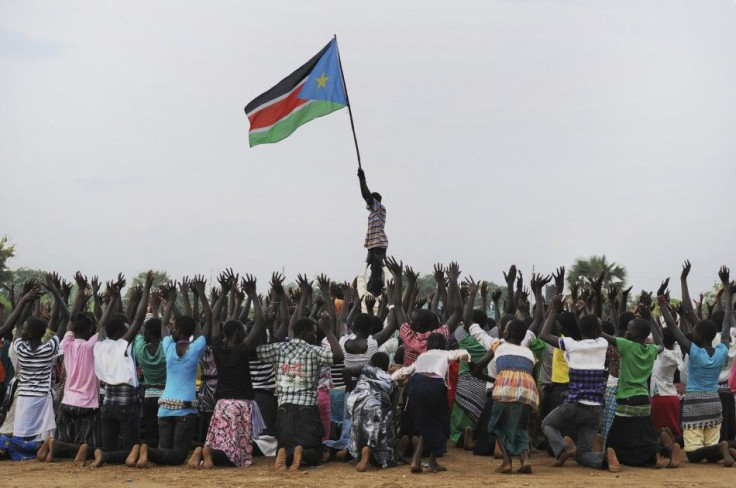Sudanese in New York Celebrate Birth of Newest Nation

People from Sudan and South Sudan gathered this morning in New York, across the United Nations, to celebrate the independence of the newest country of the planet, but also to bring attention to those, like the Darfuris, whose future hasn't been decided yet.
I've been a refugee for such a long time, that it feels good to say now that you are not a refugee anymore. It feels relief to say that you are from South Sudan, said Morris Michael, 23, a South Sudanese refugee who left his homeland when he was five and hasn't been able to go back.
Michael and his family fled the then-united-Sudan in 1993, ten years after the second civil war between the North and the South had started, to go to a refugee camp in Kakuma, Kenya, where his family still lives.
Jimmy Mulla, the President of Voices for Sudan, one of the organizers of the gathering for South Sudan independence, along with Sudan Development Foundation, said that the goal of the gathering was not only to celebrate the birth of the newest nation, but to also bring attention to disputed Sudanese regions, such as Abyei, the State of South Kordofan, the Nubia region and Darfur, which are areas in ongoing conflict.
Our goal is to work to achieve peace in all Sudan. It is great that we are independent, but we shouldn't forget about the suffering and misery of the other Sudanese, said Mulla, a South Sudanese refugee who came to the United States in 1996 and settled down in Washington D.C.
Mulla also had words of remembrance for the more than two million people killed during five decades of civil wars between the North and South and for the approximately four million citizens displaced.
Despite the joyful celebration with speeches from people from Sudan and South Sudan, there was some apparent sadness among those citizens and friends of a country that, until yesterday, was the biggest nation in Africa.
I'm a bit sad. Before it was one country, now it is two. I have lots of friends from the South who are really sweet and who will have to go back home. But I'm glad they have their independence and I came here to celebrate it with them, said Nidal Ahmed, a teacher from Khartoum, the capital of Sudan, who came to New York five years ago.
Despite the secession of the South, Ahmed believes that people are still united. We are all one people. There is not a Black South and a White North; you can find darker people in the North and whiter people in the South. For us, it is not like that.
Morris Michael had similar feelings to his friend Ahmed, although he was happy for the new status of South Sudanese. I wish we could have remained as a big country. But people feel that now they will be able to participate as citizens with full rights, not as second class citizens.
For Laura Limuli, the Coordinator of the Brooklyn Coalition for Darfur, it was a day of remembrance, but also hope, for this western Sudanese region on constant conflict since 2003.
People from Darfur [at the gathering] were really happy to see that struggle can result in freedom, and in an end to living in a segregated place, said this white New Yorker who has been volunteering with this advocacy organization for the last five years.
However, Limuli remained critical on the efforts of the international community to end a conflict that has claimed the lives of 400,000 people and displaced more than 2.5 million.
There are bombings going on in Darfur and the UN is doing nothing, said Lumily angrily. They are all about Abyei and the oil dispute, and nobody said anything about Darfur. The independence of South Sudan sold Darfur.
© Copyright IBTimes 2025. All rights reserved.





















